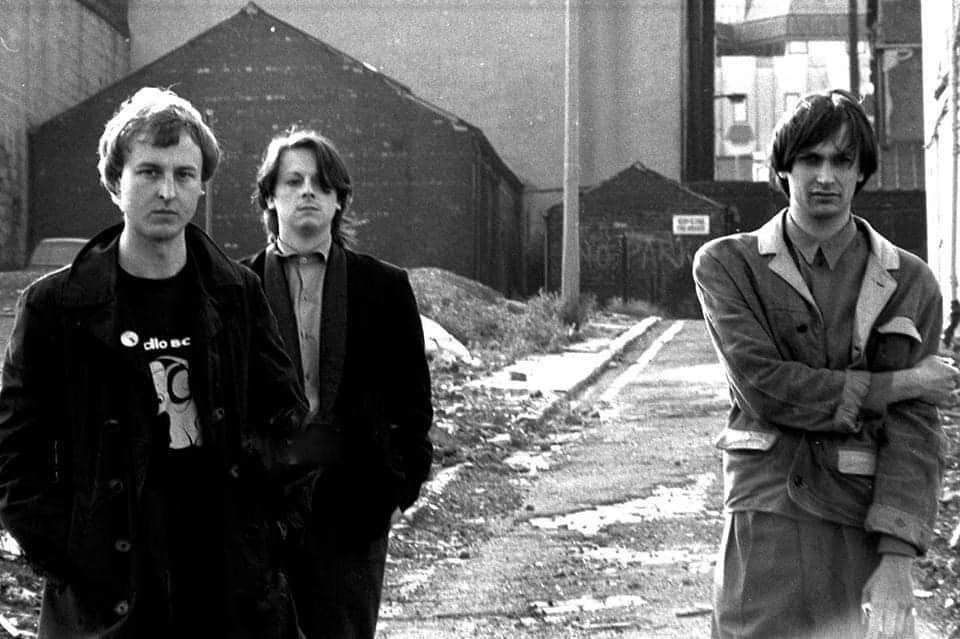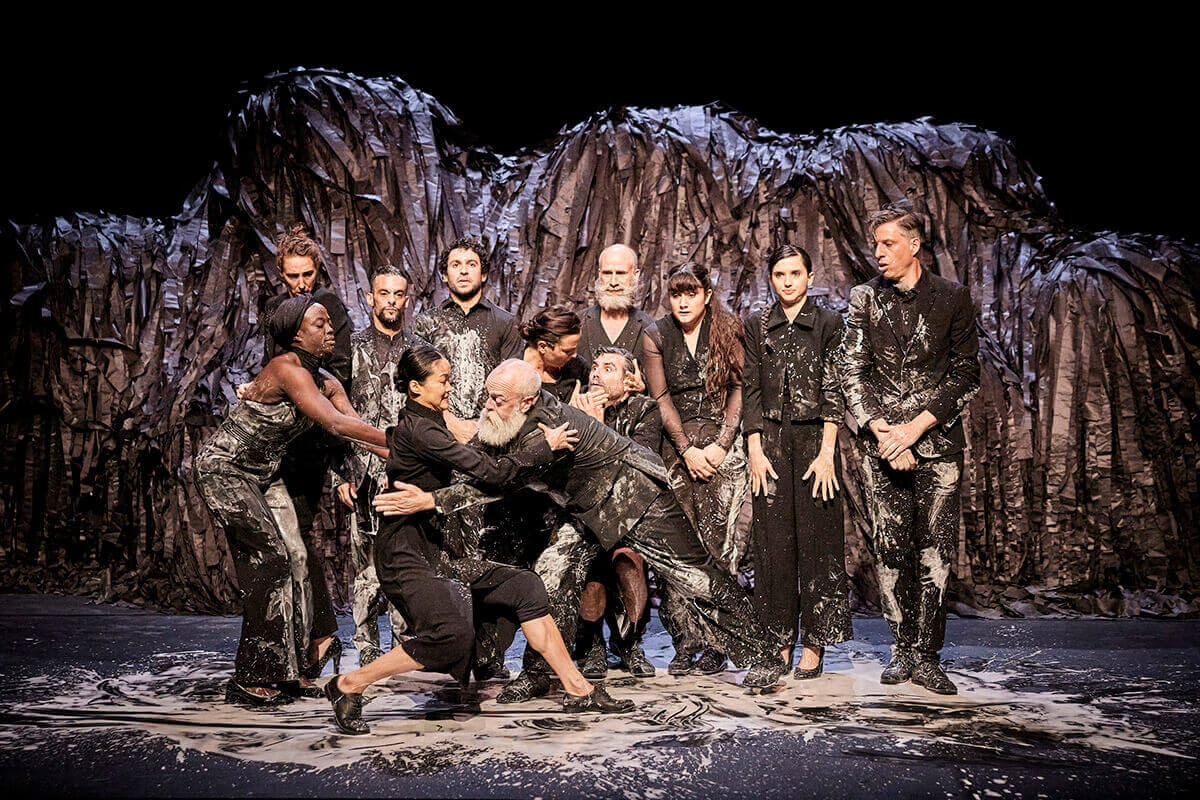Fifty years ago, Cabaret Voltaire ignited a rebellious spirit in Sheffield. During one particularly intense gig, a promoter urged the band to leave the stage while the audience, stirred into a frenzy by the pulsating sound of a steam hammer replacing a drummer, had to be restrained with a clarinet swung for protection. “We showed up, created a total uproar, and then got attacked,” recalls Stephen Mallinder. “Sure, there was a riot, and I wound up in the hospital, but it was exhilarating. That show marked a turning point; nothing like it had ever happened in Sheffield before—this was ground zero.”
Mallinder and co-founder Chris Watson are reminiscing about that pivotal moment as they prepare for a series of performances to celebrate their 50th anniversary. “It’s incredible,” Watson reflects. “Half a century—it really makes you stop and ponder its significance.” The death of their third founding member, Richard H. Kirk, in 2021 prompted them to reflect on their legacy. “We hope these shows can remind people of what we contributed, as well as give us closure,” says Mallinder.
It’s hard to overstate how groundbreaking Cabaret Voltaire was. Widely regarded as the godfathers of the Sheffield music scene, they inspired a wave of late 1970s bands like Human League and Clock DVA. Starting out in Watson’s attic as early as 1973, their raw experiments with tape loops and heavily manipulated sounds set the stage for a unique career that spanned genres from experimental music to industrial funk and techno. “There was nothing happening in Sheffield that resonated with us,” Mallinder shares. “We were free to explore without any rules, and we enjoyed ruffling feathers.”
Drawing inspiration from dadaism, they even set up speakers in cafes and public restrooms, or strapped them to a van, blasting unsettling sounds in an effort to bewilder the public. “It definitely felt a bit hostile at times, but mostly we just disrupted people’s evenings,” Mallinder chuckles. Their first gig left a lasting impression: “The organizer told me afterwards, ‘You’ve completely ruined our reputation.’ We couldn’t have asked for better feedback.”
Their insular trio operated within their own unique language. As Kirk once described it, “We were like a terrorist cell. Had we not turned to music and the arts, we might have gone to extremes to express our frustrations with society.” Instead, they channeled that anger into a form of “sonic warfare,” evident in tracks like the electro-punk anthem “Nag Nag Nag” and the politically charged album “Red Mecca.”
Watson left the band in 1981 to pursue sound recording for television, while Mallinder and Kirk advanced their sound into slick electro-funk. By the late 1980s, they worked with house music legend Marshall Jefferson to create “Groovy, Laidback and Nasty.” “We faced criticism for partnering with him,” Mallinder recalls, “but we wanted to acknowledge our roots in Black American music, not just follow the UK dance scene.”
Though they enjoyed moderate success during their major label years, the group gradually wound down in the mid-1990s. However, their influence echoes through musicians like New Order and Trent Reznor. Mallinder continued creating electronic music with projects like Wrangler and Creep Show, collaborating with Cabs fan John Grant.
Watson considers leaving the group one of the toughest decisions of his life, yet he flourished, earning accolades for his work with David Attenborough on productions like “Frozen Planet.” He recalls a harrowing journey to a North Pole camp in a helicopter flown by intoxicated Russian pilots, which he describes as “the most dangerous trip I’ve ever made.”
In 2019, he recorded sounds at the Ignalina nuclear power plant in Lithuania for the “Chernobyl” series. “It was a shocking yet fascinating experience—a tense, volatile environment,” he notes. “It reminded me of our early days with Cabaret Voltaire and got me thinking about how to incorporate those sounds into my work again.”
Mallinder sees Watson’s projects as a vehicle for radical sounds to reach everyday listeners. “Cabaret Voltaire may have changed lives, but Chris is the reason millions hear the world differently,” he says proudly. Watson agrees that Cabaret Voltaire influenced his entire career.
Upcoming shows will feature Watson’s field recordings as part of a reworked project called “Inside the Circle of Fire,” capturing Sheffield’s distinctive sounds. “I want to present a fresh perspective on the city’s industrial noise,” Watson explains. These will be complemented by a live set Mallinder is developing with his longtime collaborator Ben “Benge” Edwards.
“This process has been quite emotional—deeply reflective,” Mallinder admits, particularly in remembering Kirk. Due to their strained relationship leading up to Kirk’s passing, Mallinder shares, “He was in his own world, and it was hard not communicating. I missed him, but I respected his space.”
There won’t be any new Cabaret Voltaire music, as they believe that can only exist with Kirk present. Instead, their upcoming performances serve as a tribute to their late friend and a celebration of their pioneering legacy—perhaps one last chance to create a ruckus. “Richard might not approve, but it’s done with the utmost respect,” Mallinder says. “His absence is deeply felt, but there’s a love for what we created that I want people to acknowledge. The music we made is undeniably significant, and this is our way of celebrating it.”
Cabaret Voltaire will perform at Forge Warehouse in Sheffield on October 25, followed by a UK tour from November 17 to 21. Tickets go on sale at 10 a.m. on June 6.













